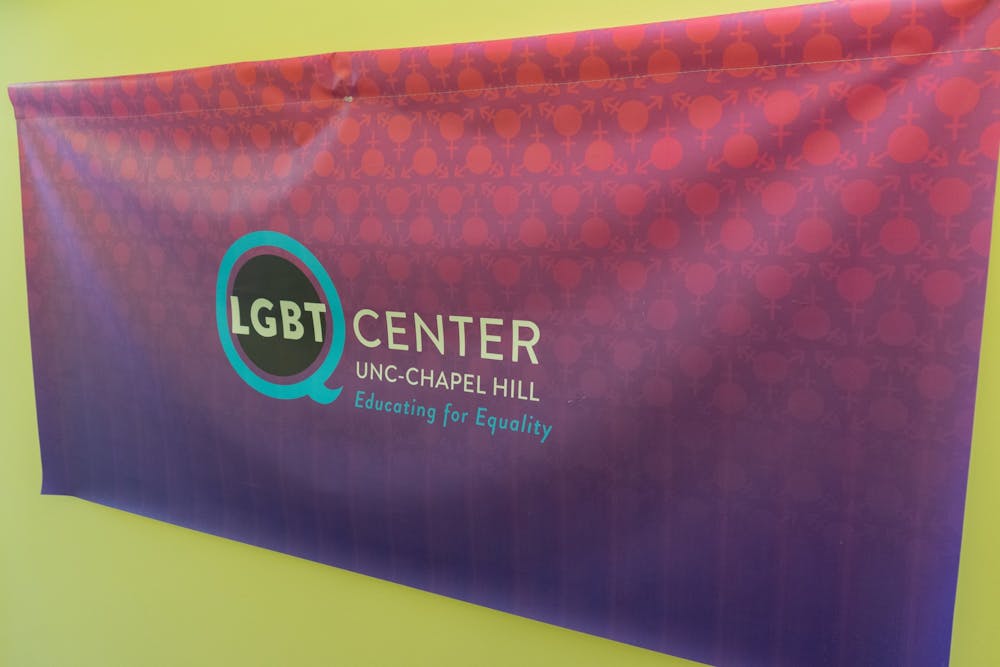Erin Siegal McIntyre, an assistant professor at the UNC Hussman School of Journalism and Media, noticed a small placard on the doors of several of her colleagues while walking around Carroll Hall.
The placard reads that the recipient “has completed Safe Zone training and has pledged to affirm the identities of and provide resources to people of all sexual orientations, gender identities and gender expressions.”
Now offered through the LGBTQ Center, Safe Zone trainings started at UNC in 1998. College campuses nationwide offer Safe Zone training programs, and they are designed to create a network of allies for LGBTQ+ individuals in and around the campus community.
The trainings are open to students, faculty and staff at UNC, as well as any interested community members. Last year, more than 1,000 trainees completed the program.
Terri Phoenix, director of the LGBTQ Center, said the Safe Zone training placards are a visible symbol of affirmation and support for LGBTQ people.
“As someone who is older and really secure in my identity, that makes me happy when I walk down the hall and I see those," Phoenix said. "It warms my heart and it makes me feel like I'm a part of this University. And so, imagine a 17-, 18-, 19-, 20-year-old who may be early in the stages of their own identity development — when they see those placards, it really makes a difference.”
Seeing the placards inspired Siegal McIntyre to attend one of the trainings in August and then to put a pride flag in her Twitter bio.
“As someone who is queer, but whose queerness is pretty invisible, for me as a professor, what I took away was sort of the importance of visibility on-campus to this community, and how there is a need for our community to see professors be out,” Siegal McIntyre said. “Like, how do you say, ‘Hey, I'm out,’ when that's not really part of your course?”
Safe Zone curriculum




